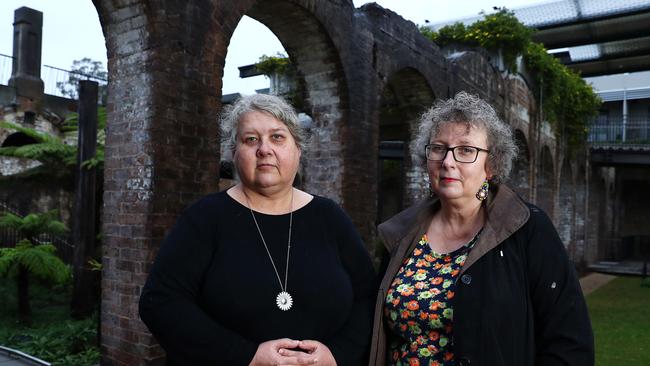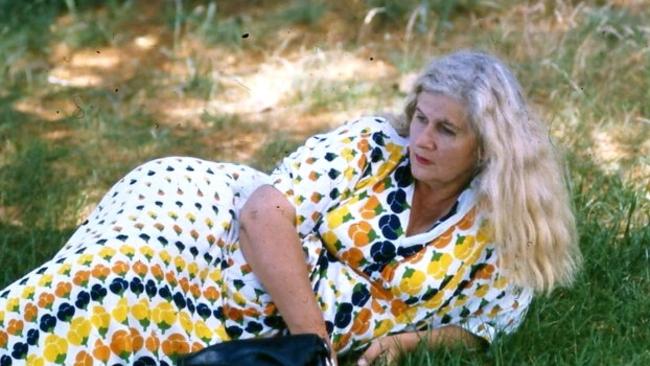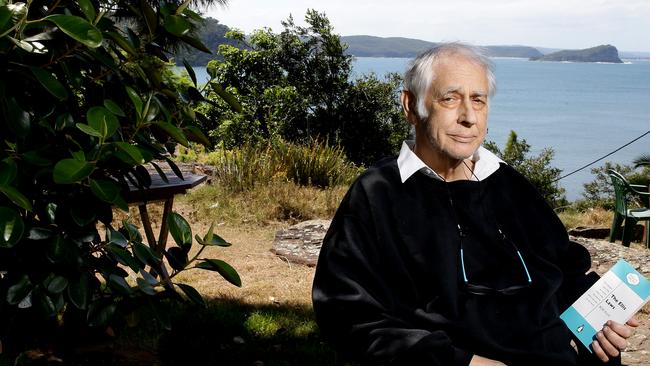The 1970s really was the Devil’s decade
THE ghastly abuse of the daughters of feminist poet Dorothy Hewett is the end result of the neo-Marxism which infested Australian academia in the ‘60s and ‘70s, writes Miranda Devine.

Rendezview
Don't miss out on the headlines from Rendezview. Followed categories will be added to My News.
IF anything blows the lid on the Devil’s Decade, the 1970s in Australia, it’s the ghastly revelations of the daughters of the celebrated Marxist feminist poet Dorothy Hewett.
Rozanna and Kate Lilley, now in their fifties, have told of being raped and sexually exploited when they were children by celebrity friends of their parents, the late author Bob Ellis and artist Martin Sharp.
They told the Australian’s Rosemary Neill on the weekend that the abuse was “facilitated” by their late mother, an enthusiastic devotee of the era’s “free love”, even when it came to her own children. The daughters described their former family home in Jersey Road, Woollahra, as “like a brothel without payment’’.
Both women have published new books this month in which they detail their childhood trauma at the hands of a series of sexual predators in their parents’ “party house” in the 1970s.
“We were these nubile girls … jailbait,” Kate, 57, is quoted saying.
“It was unbearable at home … There were constantly men staying in the house and hardly any man came to the house who didn’t try to have sex with one or more of us [her sister or mother].

Rozanna, 52, has written a poem in her new book, called Come Here, Child, which describes how Ellis, a sleazy former speechwriter to Bob Carr, then well into his 30s, allegedly forced her “reluctant fingers” inside his “verbose Y-fronts”.
Kate said that any time Ellis showed up at their house, when she was 15 or 16, there was “an understanding that he wanted to have sex with me and I just did … whenever he turned up”.
The girls’ father, communist author Merv Lilley, who they describe as probably bipolar and “very violent” tried to protect them, they claimed, but obviously failed.
Hewett, who had six children to three different men, was defended this week by one of her sons, Joe Flood, the Lilley girls’ older half-brother, but he didn’t refute their allegations of abuse, only that he didn’t blame his mother.
“Mum (Dorothy) was the guiding light and centre of our family,” he wrote in a letter to The Australian, “a splendid, charismatic and kind figure. She kept the family together in impossible conditions and she supported us financially through very many lean years as a single mother and when her men could not support us …
“You should remember that in the 70s the sexual norms we take for granted today were fluid and evolving. Mum was influenced in the mid-1960s by an old school friend who had put her young teenage daughters on the pill, and she clearly decided to follow the same path to compensate for her own repressed years as a teenager … But it eventually turned out these new freedoms had a cost.”

No truer words have been spoken. Freedom had a cost.
What could possess a mother to offer her underage daughters as sexual playthings for adult men, to invite predators like Ellis into her family home.
It wasn’t as if Hewett didn’t know what she was doing. She wrote about it. As her daughters say, it wasn’t a secret. Everyone in their middle class bohemian scene could see what was happening.
One of Hewett’s poems, titled “In this romantic house each storey’s peeled”, features the lines: “rapists, randy poets & their lovers, young men in jeans play out seductive ballets, partner my naked girls, scripts by Polanski, Russell, Nabakov …. Tired of loving men who love my daughters”.
There’s a photograph of Hewett online, surrounded by three tiny blonde children, one daughter in her lap, and another daughter and a son clutching either arm. She looks maternal, loving and protective. Yet she was anything but because she was gripped by an ideology so strong it obliterated a mother’s protective instinct.
She was first and foremost a Marxist, and, Karl Marx, a notorious adulterer, called for the “abolition of the family” in his Communist Manifesto.
His spawn, the neo-Marxists of the Frankfurt School, who had enormous influence on academia in the 1960s and 1970s in Australia called for the end of monogamy and the rise of unconstrained sexual intercourse. They were the forerunner of Safe Schools and gender ideology.

The twisted Marxist-Freudian ideology of the bohemian Seventies, made fashionable by psychoanalyst Wilhelm Reich, saw the nuclear family as an obstruction to true freedom. Reich, who is regarded as the father of the modern sexual revolution in the US, inspired writers of the era such as Allen Ginsberg, Jack Kerouac, and William Burroughs. He viewed conventional morality as a “plague” and sexual repression as a sickness.
This was Hewett’s intellectual milieu. She appears alongside Reich in Wikipedia’s compendium of Marxist writers.
Sex was a political act. She called herself a feminist but she was brainwashed into a cult which gave men unfettered sex without the family responsibilities civilised society had painstakingly created over eons. Every taboo designed to protect the vulnerable from the predatory sexual instincts of men was torn down.
“Mum had a strong belief that sex was good and she saw herself as having been constrained by Victorian parents,” Rozanna is quoted saying. “I think she genuinely believed she was offering this unfettered, uninhibited lifestyle to us.”
“In many ways, it was a very ordinary story,” Kate has said. “It was very prevalent. A lot of women have reached out saying they grew up in a celebrity milieu and ‘we too’.”
And there we have it. The honest testimony of two of the casualties of the era of free love, which was really just a rebadging of Marxism after the Soviet Union went sour. The consequences were just as deadly to the soul.



